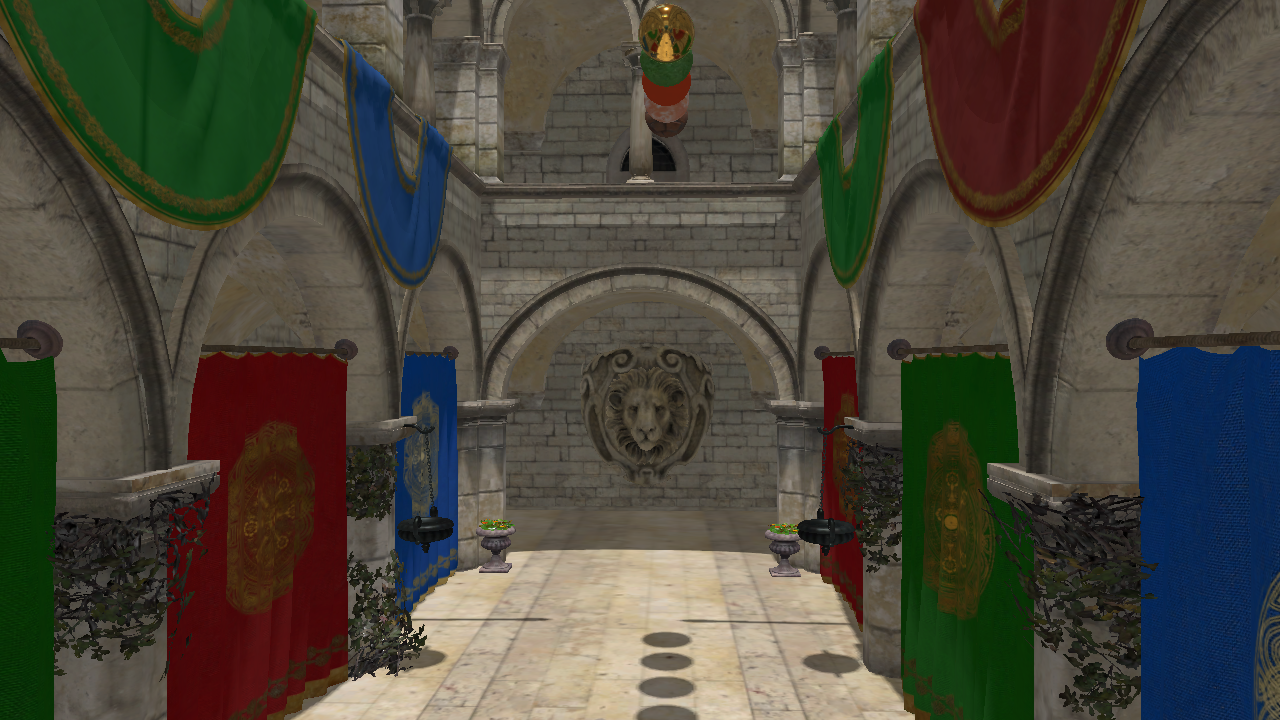FlyWrapper is a high-level graphics API is written in C++ on top of DirectX 12, Vulkan and Metal.
FlyCube is used as a rendering backend.
- Provides main features, but hide some details
- Automatic resource state tracking
- Per command list resource state tracking
- Creating patch command list for sync with global resource state on execute
- Build time generated shader helper
- Based on shader reflection
- Easy to use resources binding
- Constant buffers proxy for compile time access to members
- Camera
- Geometry utils
- 3D models loading with
assimp
- 3D models loading with
- Texture utils
- Images loading with
gliandSOIL
- Images loading with
git clone --recursive https://github.com/andrejnau/FlyWrapper.git
- Windows SDK Version 10.0.19041.0
std::shared_ptr<RenderDevice> device = CreateRenderDevice(settings, app.GetNativeWindow(), rect.width, rect.height);
std::shared_ptr<RenderCommandList> upload_command_list = device->CreateRenderCommandList();
std::vector<uint32_t> ibuf = { 0, 1, 2 };
std::shared_ptr<Resource> index = device->CreateBuffer(BindFlag::kIndexBuffer | BindFlag::kCopyDest, sizeof(uint32_t) * ibuf.size());
upload_command_list->UpdateSubresource(index, 0, ibuf.data(), 0, 0);
std::vector<glm::vec3> pbuf = {
glm::vec3(-0.5, -0.5, 0.0),
glm::vec3(0.0, 0.5, 0.0),
glm::vec3(0.5, -0.5, 0.0)
};
std::shared_ptr<Resource> pos = device->CreateBuffer(BindFlag::kVertexBuffer | BindFlag::kCopyDest, sizeof(glm::vec3) * pbuf.size());
upload_command_list->UpdateSubresource(pos, 0, pbuf.data(), 0, 0);
upload_command_list->Close();
device->ExecuteCommandLists({ upload_command_list });
ProgramHolder<PixelShader, VertexShader> program(*device);
program.ps.cbuffer.Settings.color = glm::vec4(1, 0, 0, 1);
std::vector<std::shared_ptr<RenderCommandList>> command_lists;
for (uint32_t i = 0; i < settings.frame_count; ++i)
{
RenderPassBeginDesc render_pass_desc = {};
render_pass_desc.colors[program.ps.om.rtv0].texture = device->GetBackBuffer(i);
render_pass_desc.colors[program.ps.om.rtv0].clear_color = { 0.0f, 0.2f, 0.4f, 1.0f };
decltype(auto) command_list = device->CreateRenderCommandList();
command_list->UseProgram(program);
command_list->Attach(program.ps.cbv.Settings, program.ps.cbuffer.Settings);
command_list->SetViewport(0, 0, rect.width, rect.height);
command_list->IASetIndexBuffer(index, gli::format::FORMAT_R32_UINT_PACK32);
command_list->IASetVertexBuffer(program.vs.ia.POSITION, pos);
command_list->BeginRenderPass(render_pass_desc);
command_list->DrawIndexed(3, 1, 0, 0, 0);
command_list->EndRenderPass();
command_list->Close();
command_lists.emplace_back(command_list);
}
while (!app.PollEvents())
{
device->ExecuteCommandLists({ command_lists[device->GetFrameIndex()] });
device->Present();
}
device->WaitForIdle();SponzaPbr was originally part of the repository. It is my sandbox for rendering techniques.
- Features
- Deferred rendering
- Physically based rendering
- Image based lighting
- Ambient occlusion
- Raytracing
- Screen space
- Normal mapping
- Point shadow mapping
- Skeletal animation
- Multisample anti-aliasing
- Tone mapping
- Simple imgui based UI settings
